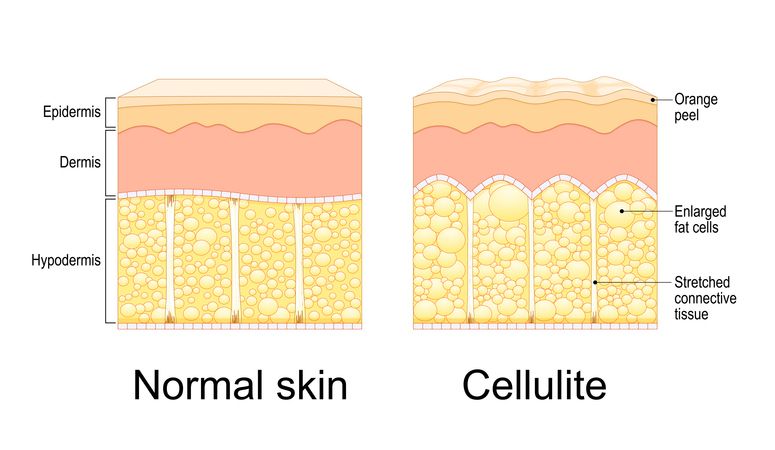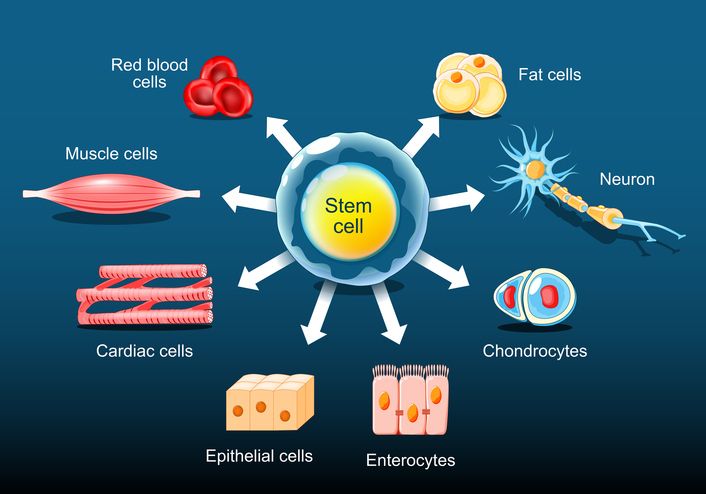Author: Natalie Ng|Updated: 6 May 2025
You don’t need to scrub your skin raw to keep it clear. In fact, overwashing can make things worse. Your skin works on a natural 28–40 day renewal cycle. If you clean too often or use the wrong products, you interrupt that process. This can lead to dry patches, redness, more breakouts, or even oilier skin. Keeping clear skin is more about balance than control. A gentle skincare routine that respects your skin’s natural rhythm helps keep pores clean, texture smooth, and breakouts under control. Stick to washing twice a day, use a pH-balanced cleanser, and rinse with lukewarm water. If your skin feels tight or “squeaky,” that’s a sign you’ve gone too far. Clear skin starts with healthy habits. That includes staying hydrated, getting enough sleep, eating food that supports skin health, and managing stress. Your body knows how to care for your skin—your job is to support it, not fight against it. Understanding how your skin works helps you make better choices. Keep reading to learn how to care for your skin without stripping it, and how the right ingredients—like vitamin C, niacinamide, and herbal extracts—can support healing, reduce blemishes, and brighten your skin over time.

Achieving Clear Skin: Understanding Your Skin's Natural Cleansing Cycle
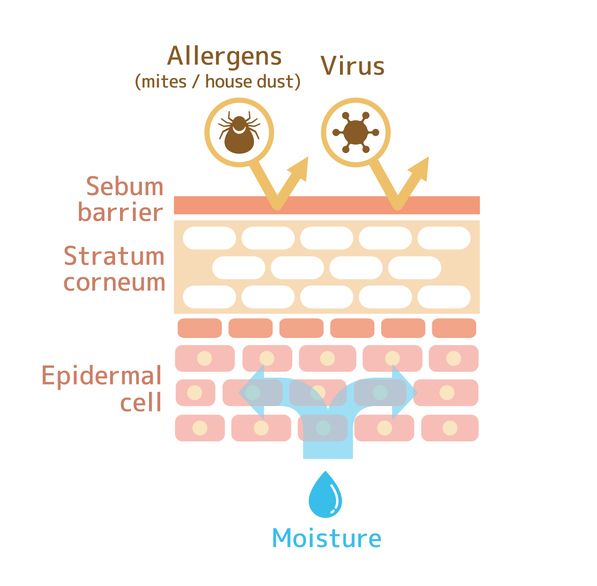
Your Skin Knows What to Do
Your skin has its own way of staying clear. It sheds old cells and makes new ones every 28 to 40 days. This process is called cell turnover. It helps remove dirt, clear pores, and reduce skin blemishes without needing harsh products. This cycle also plays a key role in wound healing, improving skin texture, and reducing signs of aging.
Sebum Protects and Hydrates
Your body produces sebum, a natural oil that keeps your skin soft and healthy. It helps protect your skin’s barrier and prevents dryness. Overwashing can strip this oil, which leads to dryness, redness, or even more oil as your body tries to replace it.
Don't Fight Your Skin—Support It
Clear skin starts by working with your skin, not against it. Washing your face once or twice a day with a pH-balanced cleanser is enough for most people. If your skin feels tight, itchy, or shows redness, it might be reacting to overwashing. That means your routine is doing more harm than good.
Let Your Microbiome Work
Your skin has a natural layer of helpful bacteria called the microbiome. It supports skin health by protecting against bad bacteria and helping reduce acne and congestion. Harsh scrubbing or frequent washing can disturb this balance. A gentle skincare routine helps your skin do its job without stress.

Signs You're Overwashing Your Face

1. Your Skin Feels Tight After Cleansing
If your skin feels tight, dry, or stiff right after washing, that’s not a good sign. It usually means your cleanser has removed too much of your skin’s natural oil. This oil protects your skin, supports its barrier, and helps prevent breakouts. When it’s stripped away, your skin becomes more prone to redness, irritation, and texture problems.
2. Your Face Looks Too Shiny by Midday
Shiny skin might seem like a sign of cleanliness, but it can actually mean the opposite. When your skin loses moisture from overwashing, your body reacts by making more oil to protect itself. This extra oil can clog pores and lead to acne, pimples, and congestion.
3. You Notice Redness, Flaking, or Burning
Skin that flakes, burns, or turns red after washing is telling you something. These are signs of stress and damage. Overwashing weakens your skin’s barrier, making it harder to protect against outside triggers like pollution, allergens, or certain ingredients. This can also make your skin more sensitive to products that are normally suitable.
4. You’re Getting More Breakouts, Not Fewer
It’s common to think that more washing means fewer pimples. But if you’re still breaking out despite daily cleansing, you may be stuck in a cycle. Washing too much causes dryness, which leads to more oil, which then causes more acne. This loop keeps your skin irritated and unbalanced.
Read More
Book Now to Experience
Acne Treatment
1 Minute Self-Registration
Date should not be before minimal date

Building an Effective Yet Gentle Cleansing Routine
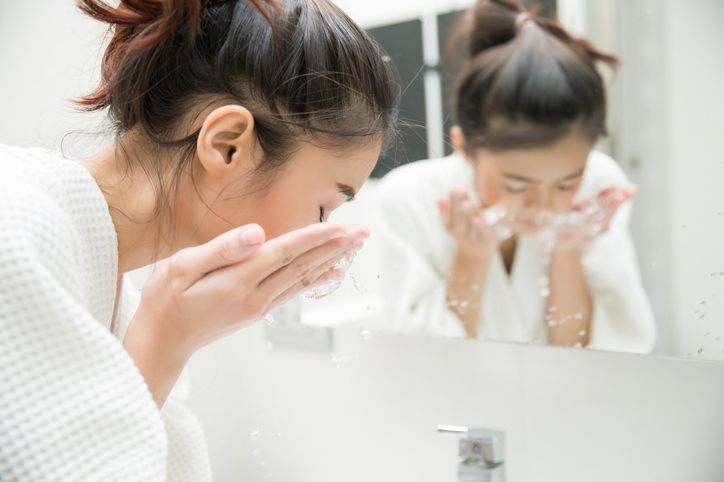
1. Cleanse No More Than Twice Daily
Washing your face in the morning and at night is enough. This removes dirt, oil, sweat, and environmental buildup without disturbing your skin’s barrier. Over-cleansing strips away natural oils that support hydration, wound healing, and protection from skin conditions like acne and redness. On low-activity days, a simple rinse with water in the morning may be all your skin needs.
2. Use a Mild, pH-Balanced Cleanser
Choose a cleanser that matches your skin’s natural pH. Harsh formulas—especially those with sulfates or strong fragrances—can damage your skin’s barrier and trigger irritation. Citric acid is an ingredient that helps maintain the skin's pH balance and supports overall skin health. Look for ingredients like niacinamide or gentle herbal extracts, which support healthy skin without drying it out. Avoid anything that makes your skin feel tight after washing.
3. Avoid Rough Scrubbing or Tools
Use your fingertips, not brushes or rough cloths. Massage the cleanser gently in circular motions for about 30 to 60 seconds. Scrubbing too hard damages your skin’s surface, increases redness, and worsens breakouts. Gentle motion supports your skin’s texture and clears pores without harming the microbiome.
4. Rinse With Lukewarm Water
Hot water can weaken your skin’s natural defenses and cause dryness. Stick to lukewarm water—it cleans without stripping. After rinsing, pat your face dry with a clean towel. Don’t rub. This simple step keeps your skin calm and reduces the risk of irritation.
5. Pay Attention to Your Skin's Daily Needs
Skin isn’t the same every day. Weather, hormones, food, and stress all affect it. On some days, you may notice more oil or redness. On others, you may feel dry. Using products with antioxidant properties can support skin health and promote clear skin. Adjust your routine based on how your skin feels. A flexible approach helps maintain clear skin and supports long-term skin health.

Balancing Oil Production Through Proper Care
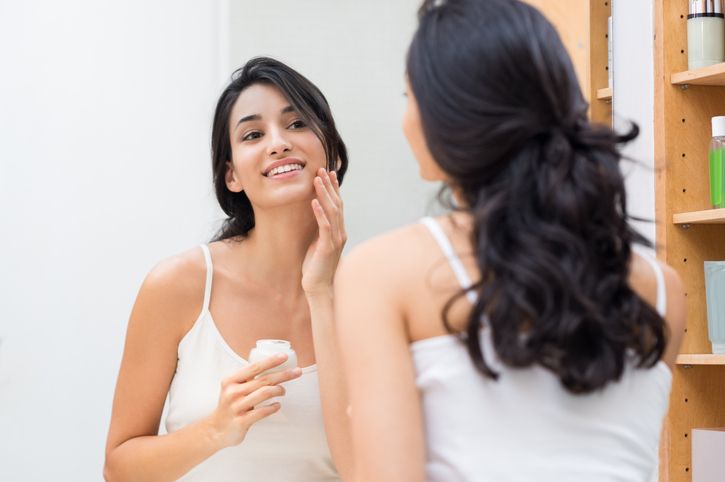
1. Stop Stripping the Skin
Your skin produces oil for a reason. It helps protect, hydrate, and support healthy skin. If you strip it too much with strong cleansers or frequent washing, your sebaceous glands react by making even more oil. This often leads to clogged pores, pimples, and breakouts. A balanced skincare routine keeps oil in check by respecting your skin’s natural rhythm.
2. Use Non-Comedogenic Moisturizers
Oily skin still needs moisture. Skipping moisturizer can actually make things worse. Choose non-comedogenic products that won’t clog your pores. These formulas are tested to avoid causing acne and congestion. Look for lightweight creams or gels that include ingredients like niacinamide or hyaluronic acid. They help lock in hydration and support the skin barrier without making your face feel greasy.
3. Focus on Water-Based Hydration
Oil and water are not the same. Your skin needs both to stay balanced. Dehydrated skin often overproduces oil to make up for lost water. Use hydrating products that absorb well and contain ingredients like glycerin, hyaluronic acid, or vitamin B3. These ingredients help your skin stay smooth and reduce the chance of developing blemishes or dry patches.
4. Blot Excess Oil—Don’t Rewash
If your skin looks shiny during the day, don’t rush to wash it again. Use blotting papers or a soft tissue to gently remove the excess oil without disturbing your skin barrier. Washing again can trigger even more oil production. Allow your skin to breathe and balance itself naturally.
5. Support Oil Control with the Right Ingredients
Some skincare ingredients can help regulate oil production over time. Herbs like green tea or chamomile can support clear skin and reduce sensitivity. Niacinamide, for example, helps reduce sebum levels and supports healthy pores. Antioxidants like vitamin C also protect against inflammation and promote clear, even skin tone. Herbal extracts—such as green tea or chamomile—can calm redness and reduce sensitivity. These ingredients help your skin stay clear without blocking or drying it out.
Book Now to Experience
Acne Treatment
1 Minute Self-Registration
Date should not be before minimal date

Alternative Methods for Maintaining Clear Skin

1. Exercise Regularly to Improve Skin Health
Physical activity helps more than just your body—it supports your skin too. Exercise increases blood flow, which delivers oxygen and nutrients to your skin. This supports cellular renewal and wound healing, helping reduce breakouts and improve skin texture. Sweating also clears out your pores and removes buildup that can lead to acne and blemishes. Just remember to cleanse gently after workouts to avoid leaving sweat on your skin.
2. Eat Foods That Support Clear Skin
Your skin reflects what you eat. Nutrient-rich food helps maintain healthy skin from the inside. Leafy greens, berries, and foods with omega-3 fatty acids (like fish or flaxseeds) reduce inflammation and help keep skin clear. Vitamin-rich ingredients—especially vitamin C—help support collagen, brighten your skin, and reduce breakouts. Avoid processed foods that trigger oil production or redness, and instead choose options that nourish both your body and your skin.
3. Manage Stress to Prevent Breakouts
Stress affects hormones, and hormones affect your skin. High stress can lead to more oil production and worsen acne or redness. Managing stress helps calm your skin and reduce breakouts. Find what works for you—whether it’s going for a walk, spending time with animals, or doing light stretching. Reducing stress keeps your whole body balanced, which includes your skin.
4. Stay Hydrated Every Day
Water keeps your skin working properly. Without enough hydration, your skin dries out, loses elasticity, and becomes more prone to pimples, flaking, and congestion. Aim to drink enough water daily and use hydrating skincare products with water-binding ingredients. Hydrated skin feels better, looks clearer, and heals faster.
5. Try Gentle Skin-Stimulating Tools
If you want to boost your skincare routine, consider methods like facial massage, gua sha, or dry brushing. These simple tools help increase circulation and support lymphatic drainage, which reduces puffiness and improves your skin’s appearance. Use them with suitable, non-comedogenic oils or serums to avoid clogging pores. Be gentle and consistent, and pair them with a skincare routine that includes recommended, skin-safe ingredients.

Support Clear Skin With a Proven Acne Treatment
1. Why Professional Treatment Can Make a Difference
Sometimes a gentle skincare routine isn’t enough to fully clear skin, especially if you’re dealing with deeper issues like acne scarring, blocked pores, or stubborn breakouts. In these cases, in-clinic acne treatment can help restore balance to your skin and support long-term skin health. For skin that's prone to congestion, pimples, and uneven texture, extra support can go a long way.
New Beauty’s Acne Treatment offers a non-invasive way to improve skin clarity using dual spiral suction and drainage. This method clears out oil, dirt, and dead skin cells from the pores—common causes of acne and inflammation. After cleansing, a medical-grade hydrating serum is infused into the skin to calm redness, restore hydration, and support wound healing.
2. How the Treatment Works
The treatment uses a two-step process:
• Step one: A spiral suction tool deeply cleans your pores, removing buildup, sebum, and old skin cells that may cause acne and blemishes.
• Step two: Once the skin is clear, the device infuses hydrating ingredients into the skin to restore the water-sebum balance and support collagen production.
This approach not only helps manage current acne but also strengthens the skin’s barrier and reduces future breakouts.
3. Benefits for Skin Health
• Clears blocked pores and reduces blackheads and whiteheads
• Balances oil production without drying the skin
• Calms redness and irritation using skin-friendly hydrating serums
• Promotes collagen for improved texture and fewer acne scars
• Supports brighter, smoother, healthier skin over time
This treatment is suitable for people with mild to severe acne. It doesn’t involve pain, harsh chemicals, or downtime. You can get back to your daily routine without discomfort, and your skin continues to improve after each session.
Clear skin starts with the right care—both at home and in the clinic. If your current skincare routine isn’t enough to manage acne or skin blemishes, this treatment offers a safe, effective way to support clearer, more balanced skin.
Book your Acne Treatment today and give your skin the reset it deserves.
New Beauty's Acne TreatmentBook Now to Experience
Acne Treatment
1 Minute Self-Registration
Date should not be before minimal date
FAQ
How Does Hard Water Versus Soft Water Affect Skin Cleansing Routines?
Ever notice how your skin feels different when you travel? Hard water contains high levels of minerals that can leave soap residue on your skin, potentially clogging pores and causing dryness. You'll find that soft water rinses cleaner and lets you use less soap, making it gentler on your skin. If you've got hard water, you might want to think about using a water softener or micellar water to free yourself from mineral buildup.
Can Certain Medications Impact How Often I Should Wash My Face?
Yes, your medications can substantially affect your skin's sensitivity and oil production. If you're taking acne medications like tretinoin or isotretinoin, you'll need to be gentler with washing to avoid irritation. Birth control pills might increase or decrease oil production, while some antidepressants can make your skin more sun-sensitive. Always check with your healthcare provider to adjust your face-washing routine based on your specific medications.
Should My Face Washing Frequency Change During Different Seasons of the Year?
Yes, you'll need to adjust your face washing routine as seasons change. In humid summers, you might need to cleanse twice daily to remove excess sweat and oil. During dry winter months, you can often reduce washing to once daily to preserve your skin's natural moisture barrier. Listen to your skin's needs - if it feels tight or dry, scale back; if it feels oily or congested, wash more frequently.
Does the Temperature of Cleansing Water Make a Difference for Skin Health?
Your skin responds to specific water temperatures. You'll want to avoid extremes - hot water strips your skin's natural oils and causes irritation, while icy water can shock your skin and constrict blood vessels. Lukewarm water's your best ally, as it effectively cleanses without disrupting your skin's natural balance and keeps your pores functioning naturally.
How Do Hormonal Changes Affect the Recommended Frequency of Face Washing?
During hormonal fluctuations, you'll need to adjust your face-washing routine to match your skin's changing needs. When you're experiencing hormonal shifts, your skin might produce more oil, leading to increased breakouts. Listen to your skin - if it feels oilier, you can wash twice daily, but if it's feeling sensitive or dry, stick to once. Don't feel locked into a rigid schedule; let your skin guide you.
Recommended Articles
COPYRIGHT© NEW BEAUTY MANAGEMENT LIMITED 2026. ALL RIGHT RESERVED.

